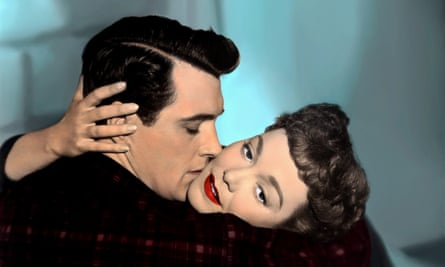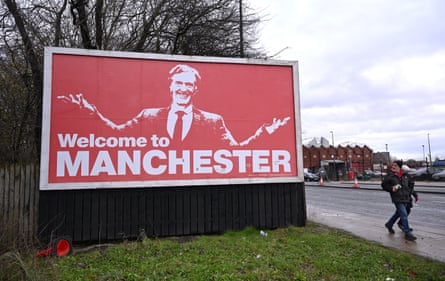It started life as a cargo ship transporting timber around the Baltic Sea, but for the last four decades it has been moored in the Mud Dock area of Bristol’s floating harbour, hosting music acts from Pulp to Stormzy, helping launch the city’s drum‘n’bass and trip-hop scenes and providing a bobbing canvas for the street artist Banksy.
Thekla, one of south-west England’s most beloved and vibrant venues, is celebrating its 40th anniversary this week with a series of shows, an exhibition and the publication of a book marking the ups and downs (literally – the vessel did once run aground) of the grand old boat.
“It’s a truly unique venue,” the general manager, Alex Black, said. “Bristol has got a great music scene and a love for all things nautical so when those two things are combined it’s a match made in heaven. It’s quirky and I think that’s helped bring people through the doors over the years.”
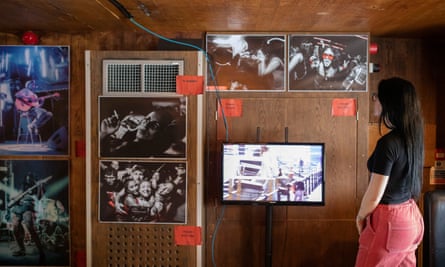
Stories swirl around the boat. One of Banksy’s most famous paintings, the Grim Reaper, was painted on the hull but it was removed in 2014 because of erosion concerns and is now on display in the nearby M Shed Museum.
There are rumours that another piece by the local artist is to be found somewhere onboard the boat, perhaps a stencilled tiger. “We think it may be in the toilets, hidden beneath some tiles or painted over,” Black said.
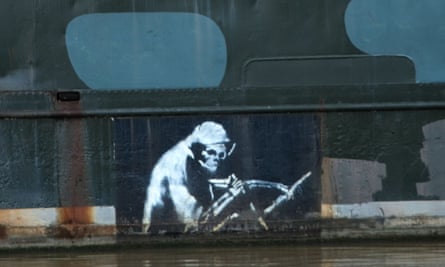
Less romantically, former regulars describe how when the waste tank was full, the ship would list. Black said that issue had been fixed but the ship could still move sometimes if people happened to congregate on one side.
“You will still feel it now and again, particularly if you’re somewhere with a window or a horizon you can see things are slightly wonky.”
Thekla was built in Germany in 1958 with an old U-boat engine as propulsion. After years of loyal service, it sank off the East Sussex coast in 1975 and was rusting away in Sunderland before being saved by a group of people including Vivian Stanshall, of the Bonzo Dog Doo-Dah Band.
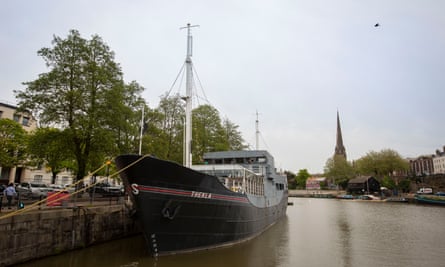
It arrived in Bristol and was rebranded the Old Profanity Showboat, hosting cabaret, comedy, plays, musicals, and poetry events. Ogden, the ship’s cat, would sometimes steal the show, once appearing during a key scene in a production of Lady Chatterley’s Lover.
Over the years it morphed into a nightclub and live music venue, was given back its original name and in the 90s became a cult underground space for Bristol’s drum‘n’bass and trip-hop scenes. Portishead, Massive Attack and Roni Size all played Thekla. When it was threatened with closure in 2017 because of a proposed residential development, thousands signed a petition calling for it to be saved.

There are hazards. The security team has to stop people from trying to climb the mast, and the head doorperson, Grayson Underhill, once had to leap into the water to rescue a woman who had jumped into the harbour.
“It was a November night. The temperature was -3C,” he said. It was a happy ending – she was fine, he won a bravery award. “Thekla runs what I would call a tight ship. It’s a brilliant atmosphere. We get very little trouble.”
Chris Arnold, a DJ who will be behind the decks this weekend for one of his Beatles Dub Club nights, said he loved the atmosphere of the boat – the nooks and crannies, the fact that the offices are in the captain’s bridge. “It’s a special place.”
The 40th anniversary comes at a difficult time for grassroots live venues, with music lovers in nearby Bath having recently lost the iconic Moles, which closed after 45 years.
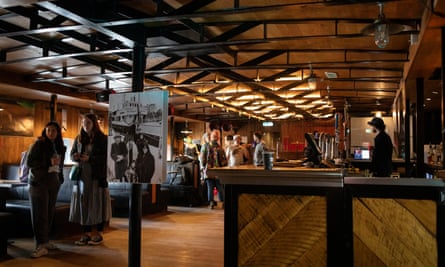
But there is an air of defiance and nimbleness around Thekla, which for its 40th anniversary memorabilia took advantage of the Mickey Mouse persona Steamboat Willie coming out of copyright, using the image on T-shirts, caps and badges.
Black said it was a “pivotal time” for independent venues. The vessel is structurally sound, having undergone a £1m refurbishment in 2019 that included grafting a new hull on top of the old one in Bristol’s Albion Dock. “Thekla’s got a good few years left,” Black said. “We hope to be in it for the long haul.”
Source: theguardian.com











